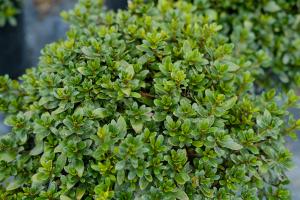Is Bottled Water Better Than Tap Water for Plants?
As a plant owner, your top priority is to keep your green friends healthy, hydrated, and nourished. One of the key factors in achieving this goal is choosing the right type of water to use for watering your plants. While both bottled and tap water can be used for this purpose, there are certain benefits and drawbacks to each option.
Bottled Water Benefits
Bottled water is often considered as the preferred option for plant owners due to its purity and convenience. Unlike tap water, which may contain impurities, chemicals, and minerals that could be harmful to certain plants, bottled water is usually filtered and treated to remove any unwanted substances. This makes it a safer and more reliable choice, especially for sensitive plants or those that are prone to developing issues due to poor water quality. Additionally, bottled water is easy to find, store, and use, which can save you time and effort when caring for your plants.
Bottled Water Drawbacks
Despite its benefits, there are some disadvantages to using bottled water for plants. One of the primary concerns is the cost, as bottled water can be significantly more expensive than tap water. This can make it prohibitive for those who have large plant collections or who want to water their plants frequently. Additionally, the use of bottled water can generate a lot of plastic waste, which can harm the environment and contribute to pollution. If you are concerned about sustainability, using bottled water may not be the most ethical choice.
Tap Water Benefits
Tap water is the most common choice for plant owners due to its availability, affordability, and convenience. In many cases, tap water is safe and suitable for most plants, as it contains the necessary nutrients and minerals that plants need to grow and thrive. Additionally, tap water is regulated and monitored by local authorities to ensure that it meets certain quality standards. This can give you peace of mind knowing that your plants are getting the best possible water. Finally, using tap water can be a more sustainable option, as it reduces plastic waste and conserves resources.
Tap Water Drawbacks
However, tap water is not without its drawbacks. Depending on where you live, your tap water may contain high levels of chlorine, fluoride, or other chemicals that could negatively impact your plants over time. This is especially true if you have sensitive plants or if your water is particularly hard or soft. Additionally, tap water can sometimes contain trace amounts of heavy metals or toxins that could accumulate in your plants over time. This can lead to problems with growth, blooming, or overall health, and may require additional treatment or filtration to rectify.
The Verdict: Which One Is Better?
So, which one is better for your plants: bottled water or tap water? The truth is that there is no definitive answer – it all depends on your individual needs, preferences, and circumstances. Bottled water can be a great choice for those who want to ensure that their plants are getting the cleanest, purest water possible, but it may not be feasible or sustainable for all plant owners. Tap water, while convenient and affordable, may require some additional monitoring and filtration to ensure that it is safe for your plants. Ultimately, the best approach is to experiment with different types of water and see what works best for you and your beloved green friends.

 how many times do yo...
how many times do yo... how many planted tre...
how many planted tre... how many pine trees ...
how many pine trees ... how many pecan trees...
how many pecan trees... how many plants comp...
how many plants comp... how many plants can ...
how many plants can ... how many plants and ...
how many plants and ... how many pepper plan...
how many pepper plan...






























